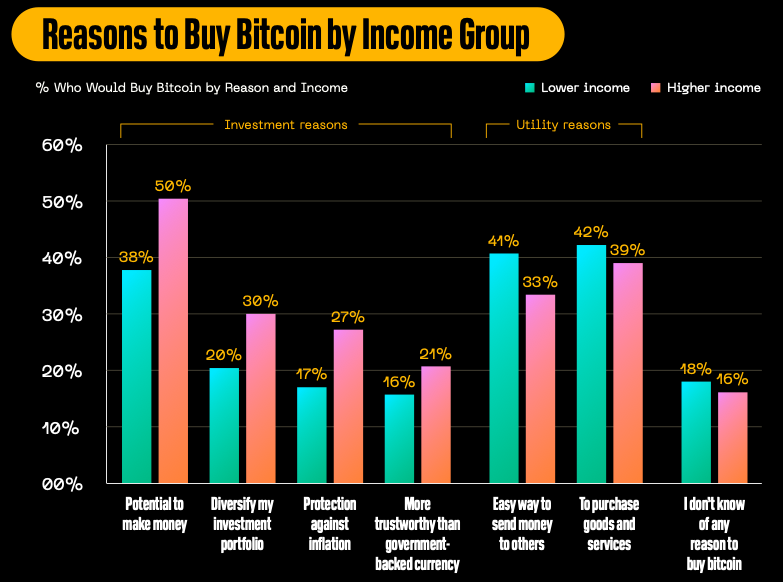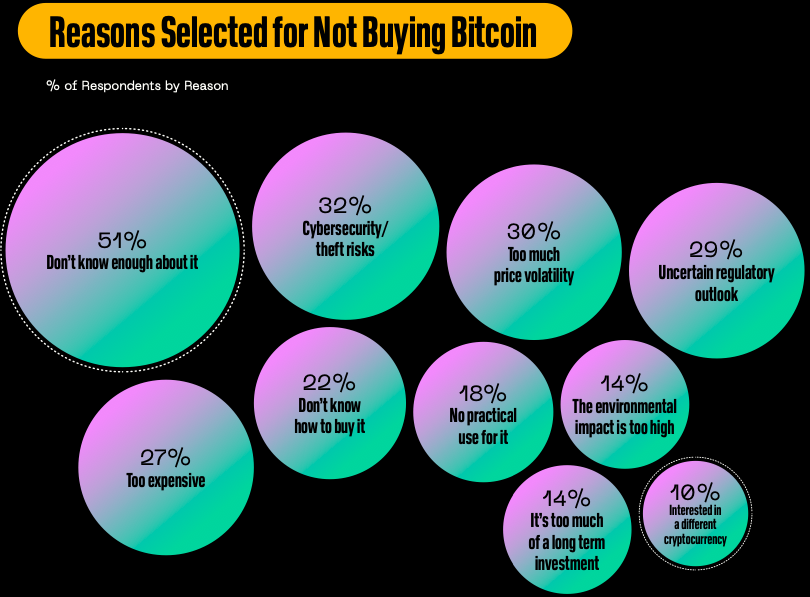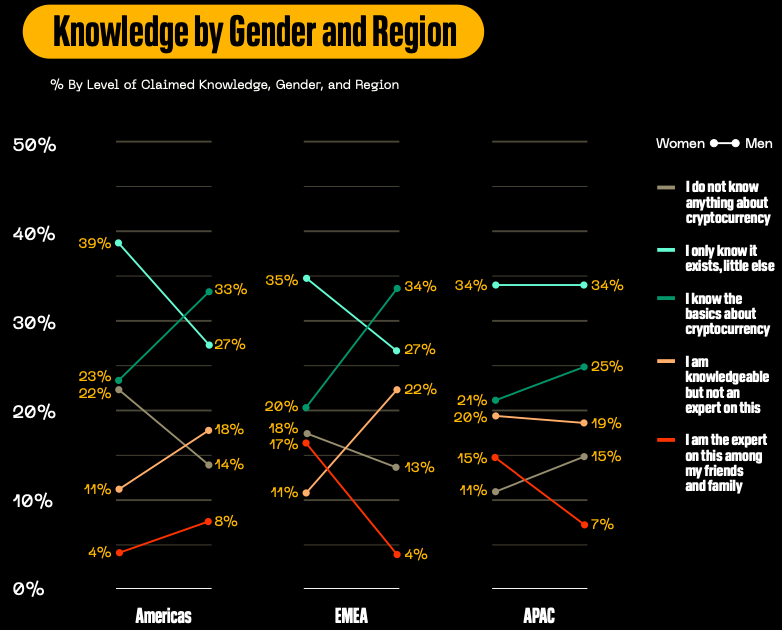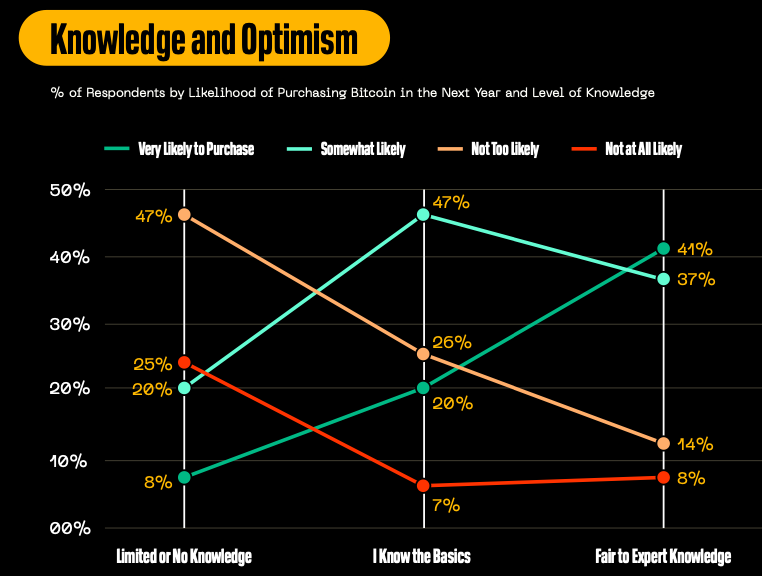Explaining why people are buying and NOT buying Bitcoin [BTC]

Bitcoin and cryptocurrencies have been at the center of financial markets in 2022. Extreme volatile trends coupled with aggressive development in the Web 3 space have caught the eyes of many. To further study these trends, Block Inc. recently published a report detailing a survey of 9,500 people across major continents.
Block Inc. partnered with Wakefield Research to publish the report titled “Bitcoin: Knowledge and Perception.” The report talks about the retail trends of Bitcoin perception in 14 countries across the world. According to the same, most people consider Bitcoin as a means for payment, among other uses.
Why are people buying and NOT buying Bitcoin?
The most common reason for buying Bitcoin across all income groups is simply to make money. However, the study has helped understand other trends in Bitcoin utility among individuals. People with above-average incomes are likely to purchase Bitcoin with cash excesses since they use it for diversification and protection from inflation.
On the other hand, lower income groups usually buy Bitcoin for sending money and purchasing goods and services. Hence, they recognize the utility of Bitcoin more than other high-income groups.
Despite the many advantages being offered, people still have reservations against owning Bitcoin. A lack of Bitcoin knowledge is the most common reason why people don’t buy it.
It is followed by cybersecurity, price volatility, and regulatory uncertainties as the primary reasons.
Dissolving the gender divide
As per the report, there is no gender divide between people that own Bitcoin and see themselves as experts. Women, on the other hand, tend to buy Bitcoin for its utilities, when compared to men.
The report went on to add,
“47% of women see the prospect of buying goods and services as a good reason to buy bitcoin, compared with just 34% of men. Similarly, 47% of women see the prospect of using bitcoin to send money to others as a good reason to buy bitcoin, compared with 27% of men.”
Will it go all the way?
One peculiar observation made was with respect to the knowledge and optimism associated with Bitcoin’s future. The more people feel they know about cryptocurrency, the more optimistic they are about its future.
Additionally, millennials tend to be the most optimistic about Bitcoin’s future with baby-boomers being the least. This finding, as expected, seemed to be in line with previous studies.
What’s the big deal with crypto right now?
Worth pointing out, however, that in mainstream circles, the opinion on Bitcoin and cryptos remains as divided as ever. A recent Reuters report, for instance, underlined “concerns” associated with cryptocurrencies were highlighted.
As per the same, the focus is twofold: cryptos’ possible impact on financial stability and its need to protect vulnerable customers.
Needless to say, while retail investors might be optimistic about the asset class, regulators aren’t so. At least, not yet.










